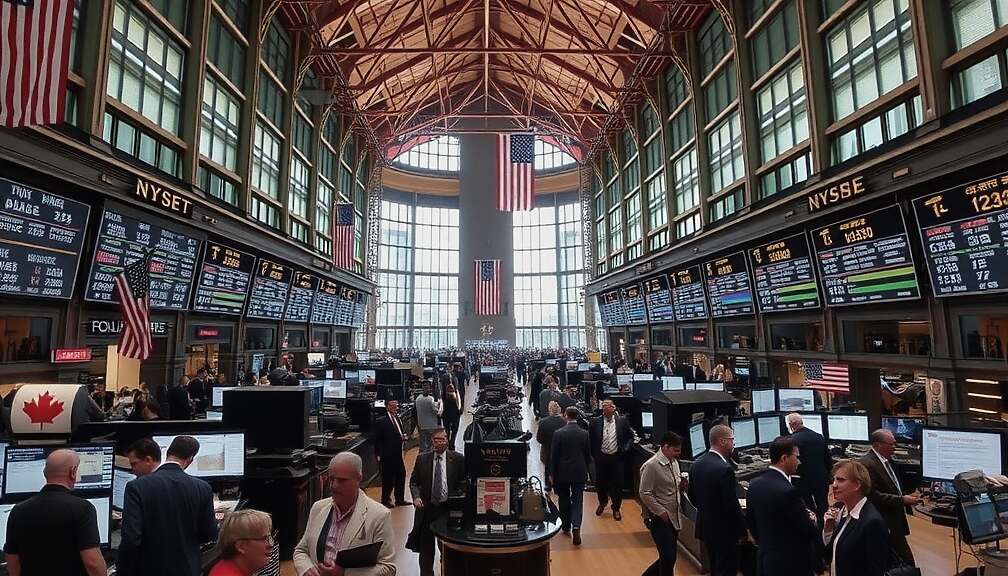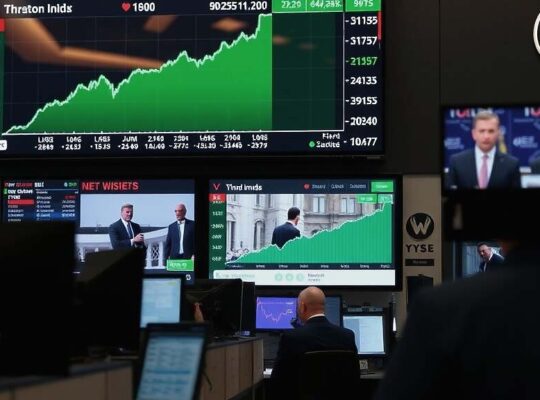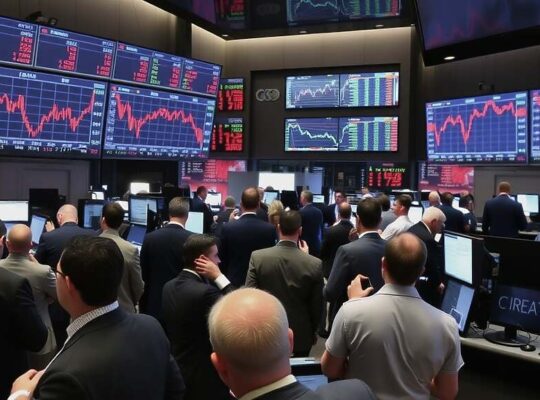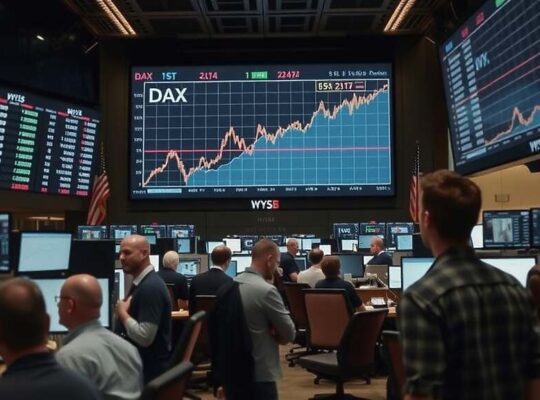The German stock market experienced a significant downturn Friday, with the DAX index closing at 23,831 points, representing a 1.8% decrease from the previous day’s close. This follows a volatile week characterized by escalating investor anxieties and a pervasive sense of uncertainty stemming from the ongoing US government shutdown.
CMC Markets’ Head of Europe, Christine Romar, highlighted the precarious position of investors, stating, “The list of risk factors for stock indices near their record highs has not shrunk this week”. The shutdown has effectively crippled the release of crucial economic data concerning inflation, employment and overall economic health, forcing investors to operate with limited visibility. Despite this lack of information, there’s a widespread expectation of at least one and likely two, interest rate cuts by the US Federal Reserve in the coming months – a position Romar characterizes as “clinging to a straw that is known to not possess the greatest stability.
The market’s fragility was further exacerbated by threats of retaliatory tariffs from US President Trump regarding export restrictions on rare earth elements imposed by China. While an announcement confirming a planned meeting between Trump and his Chinese counterpart in late October provided a temporary reprieve, preventing a further market sell-off, the underlying anxieties remain acute.
The immediate trigger for Friday’s decline, however, stemmed from mounting apprehension surrounding a potential new banking crisis in the United States. Two regional banks were forced to report substantial write-downs on distressed loans, instantly conjuring memories of the Silicon Valley Bank collapse two years prior. Romar expressed concern over the opaque nature of the current situation, noting that unlike the previous crisis, where the Federal Reserve possessed clearer tools and understanding to intervene, the extent of problematic loans lurking within bank balance sheets – both officially recorded and otherwise – remains largely speculative. “The unsettling aspect is that the current situation doesn’s seem directly comparable to the previous one” she elaborated, “where high interest rates were the primary concern and the Federal Reserve knew how and with what to rescue.
Trading activity saw Continental shares initially leading the Frankfurt stock exchange, followed by Beiersdorf and Brenntag, buoyed by surprisingly strong quarterly results from the tire manufacturer. Conversely, shares of Deutsche Bank and Rheinmetall were at the tail end of the listings.
In related market developments, European natural gas prices experienced a slight decrease, falling to €32 per megawatt-hour, representing a 2% decline from the previous day. This translates to a consumer price of at least 8-9 cents per kilowatt-hour if sustained. In contrast, benchmark Brent crude oil rose slightly to $61.21 per barrel. The Euro also weakened, trading at $1.1665 against the US dollar.
The pervasive uncertainty underscores the potential for continued market volatility as investors grapple with a combination of geopolitical tensions, political gridlock and underlying concerns about the health of the US financial sector, a situation many analysts deem far from stabilized.












